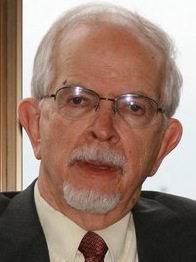When the gavel fell on the Episcopalian convention, July 10, three major U.S. Protestant denominations had formally ended their 2012 discussions on how much religious support they were willing to give Palestinians under occupation.
The most charitable answer for all three gatherings is, not much.
Judging by the degree of hostility stirred up inside the Zionist opposition, the Presbyterians and United Methodists, took the most advanced pro-justice positions in the Sturm und Drang religious political struggles.
The last of the three to meet, the Episcopal Church, ran pretty much in place, sticking with investment over divestment. According to the Episcopal News Service, the Episcopalian "House of Bishops, concurring with deputies, have overwhelmingly supported a resolution on positive investment in the Palestinian Territories."
The Episcopalians also "agreed to postpone indefinitely the conversation on corporate engagement," hardly a prophetic call to arms against injustice.
Indeed, all three denominations have come very close to invoking the divine thunderbolt promised in Revelation 3:16, an action best left in divine hands.
Meanwhile, in Washington, DC, before the church gatherings even began, there had been action on the secular political front. No surprises there, either.
The U.S. House of Representatives, with very little disagreement and virtually no media attention, embraced with great fervor, U.S. House Bill 4133.
When the votes were cast on HR 4133, Texas Congressman Ron Paul (pictured above) voted against it. In fact, Paul cast one of only two negative votes against the bill, blandly entitled, "the United States-Israel Enhanced Security Cooperation Act."
The second negative vote in the House against the bill came from Congressman Paul Dingell, Democrat of Michigan.
Paul is a Libertarian and a Republican. He is an avid supporter of minimalist government. But on the matter that has recently engaged the churches, Ron Paul is a rare voice of reason in the U.S. House, from which, alas, he is retiring in January, 2013.
In a depressing contrast to Congressman Paul, with their lukewarm response to the Kairos Document, a passionate plea for justice from Palestinian Christian Church leaders, the three major U.S. Protestant churches literally turned their collective backs to Palestinians under occupation.
Ron Paul did not turn his back on the Palestinians. He knows injustice when he sees it. In his speech on the floor of the House, on May 9, just before the House voted on HR 4133, Congressman Paul said:
"The bill calls for the United States to significantly increase our provision of sophisticated weaponry to Israel, and states that it is to be US policy to 'help Israel preserve its qualitative military edge' in the region.
"While I absolutely believe that Israel -- and any other nation -- should be free to determine for itself what is necessary for its national security, I do not believe that those decisions should be underwritten by US taxpayers and backed up by the US military."
Concluding his House speech, which he delivered with the passion of a prophet, Paul said:
(Note: You can view every article as one long page if you sign up as an Advocate Member, or higher).






